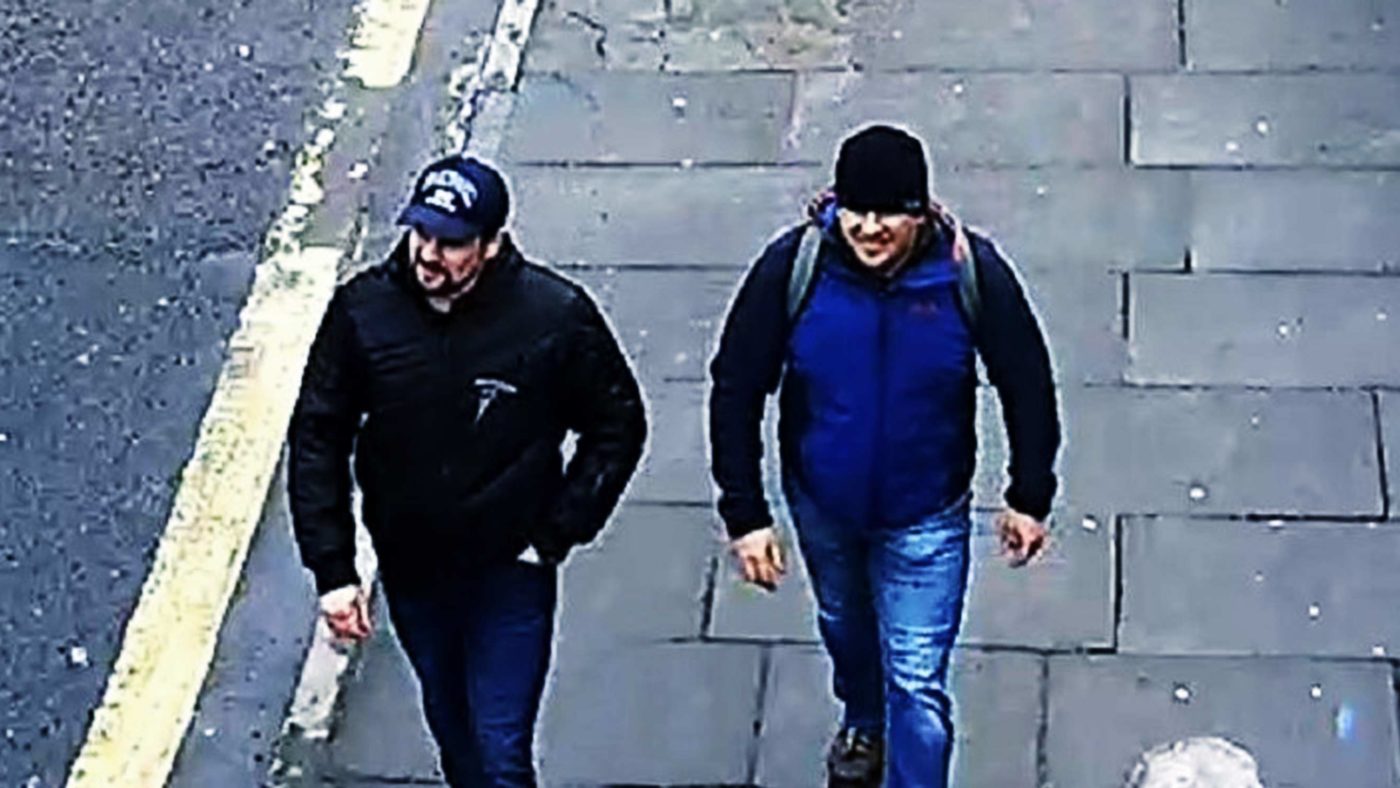The poisoning of Sergei and Yulia Skripal in March was not a rogue operation, the Prime Minister told MPs yesterday. She might have added that the attack using a nerve agent was, on the available evidence, the operation of a rogue state.
The Putin regime has created a political culture of lethal violence against its critics. Theresa May has handled the issue well, while lamentably lacking the support she would be entitled to expect from the official opposition. The sad reality is that Britain’s options are severely limited in responding to an outlaw regime. Almost inevitably, Vladimir Putin will literally get away with (attempted) murder. But we can try.
In the Commons yesterday, Mrs May named as prime suspects Alexander Petrov and Ruslan Boshirov. These men are agents of the GRU, the Russian military intelligence. Mrs May’s reasons for stating that the attack was “almost certain” to have been authorised by someone senior outside the GRU (the intelligence agency) are based on evidence.
Petrov and Boshirov were filmed by CCTV in Salisbury, where Sergei Skripal lives, shortly before the attack and – wreathed by smiles — after it. They had apparently travelled to Britain on passports issued by the Russian government, stayed in an unobtrusive hotel in East London, and engaged in reconnaissance in Salisbury the day before the attack.
Since news of the poisoning broke, conspiracy theorists have run rife on social media but the facts are impossible to gainsay. Western intelligence has many failings to its name (the issue of Iraq and WMDs is ceaselessly raised) but the attack using novichok, a nerve agent, is not a speculative hypothesis. It is a forensically demonstrated event, in which an identified toxic substance was used against real people. The intended targets, the former spy Sergei Skripal and his daughter Yulia, were poisoned; a bystander has died and another is desperately ill.
There is no reason why a diplomatically embattled British government, isolated from its European allies by a disastrous referendum decision for Brexit, would state its convictions on Russian guilt other than the facts. The same is true given the incumbency in the White House of a mercurial braggart who is a direct beneficiary of Russian intervention in the US presidential election of 2016, in the form of hacking into the campaign of Hillary Clinton and the Democratic Party.
Moreover, Russia under President Putin has form for this type of murderous behaviour. Political assassination is a hallmark of the regime. Anna Politkovskaya, a brave journalistic critic of Russian depredations in the Chechen conflict, was shot dead in her Moscow apartment block in 2006. The same fate was visited on Andrei Kozlov, an official of the Russian central bank and a campaigner against Russia’s “dirty banks”. Most notoriously Alexander Litvinenko, a former Russian spy, was murdered with the radioactive substance polonium, administered in a cup of tea, in London in 2006. A public inquiry led by Sir Robert Owen concluded in 2016 that Mr Putin had probably approved the assassination.
What can Britain do? Not much, but something is not nothing. The Crown Prosecution Service requested in 2007 the extradition of Andrei Lugovoi, the agent who is believed to have poisoned Litvinenko’s tea. He is being protected by the Putin regime. The same is true of Petrov and Boshirov. Britain cannot carry on diplomatic relations as normal with a state that has, in addition, altered the boundaries of Europe by force (in Crimea) and supported the murderous Assad regime Syria.
Britain should isolate and target with sanctions Russian state officials engaged in such outrages. Tragically, however, Mrs May’s government is isolated from its natural European partners by the advent of Brexit. It also cannot count on the automatic support of the US, as President Trump appears convinced that his personal relations with Mr Putin – rather than a stand for the collective security of the western alliance – are all that matters. The only realistic steps are symbolic.
Even so, symbolism matters. The US during President Ford’s administration signed the Helsinki Final Agreement in 1975 with the Soviet Union, specifying the importance of human rights, even though it was convinced that these undertakings would not be observed in practice. The agreement even so encouraged dissidents throughout the Soviet bloc.
The British government should now reiterate its conviction that the Putin regime is responsible for overseas aggression and irredentism, and invite its allies’ support. The propaganda war is especially important. In the late 1940s, Clement Attlee’s Labour government combined anti-Communist diplomacy overseas with a dedicated effort to improve public information at home. In the 21st century, the Russian state propaganda services Sputnik and Russia Today enjoy the liberties afforded by British constitutionalism but should not be given the latitude that respected journalistic outlets like the BBC or CNN receive.
This is a conflict that will persist for a long time. Britain, as part of a liberal-internationalist world order, will insist on due process and the rights of dissent. The Putin regime, enjoying the support of far-right movements throughout Western Europe, will hunt down dissidents and support nativism and thuggery. But we have been through this before, from 1945 to 1991. Containment, through diplomatic and economic means, of Moscow’s aggression from the end of the Second World War to the dissolution of the Soviet empire worked. Dispelling illusions of Russian compliance, it is needed again.


